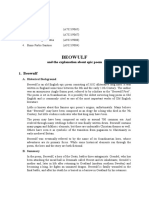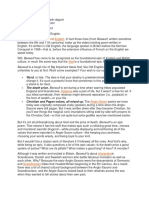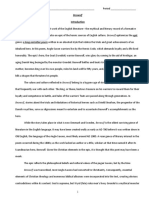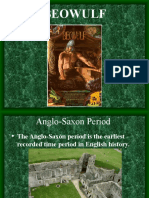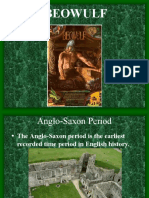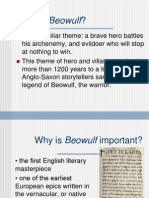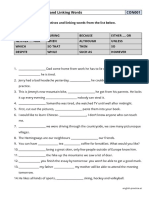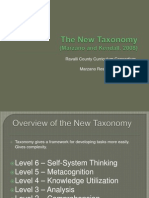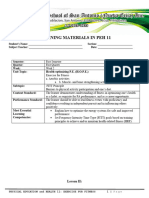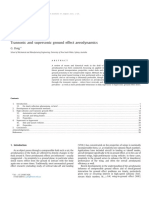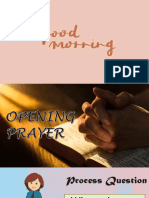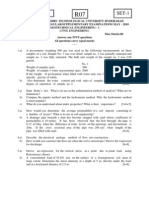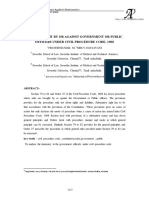0% found this document useful (0 votes)
420 views34 pagesBeowulf: Epic Poem and Oral Tradition
Beowulf is an Old English epic poem written anonymously around 700 CE. It follows the hero Beowulf in his battles against the monster Grendel, Grendel's mother, and a dragon. It is one of the earliest surviving epic poems in a modern European language and provides insight into Anglo-Saxon culture of the period. The poem depicts the heroic code of conduct of the time through Beowulf's courageous fights against supernatural threats, cementing his status as an epic hero.
Uploaded by
Diego AvilaCopyright
© © All Rights Reserved
We take content rights seriously. If you suspect this is your content, claim it here.
Available Formats
Download as PDF, TXT or read online on Scribd
0% found this document useful (0 votes)
420 views34 pagesBeowulf: Epic Poem and Oral Tradition
Beowulf is an Old English epic poem written anonymously around 700 CE. It follows the hero Beowulf in his battles against the monster Grendel, Grendel's mother, and a dragon. It is one of the earliest surviving epic poems in a modern European language and provides insight into Anglo-Saxon culture of the period. The poem depicts the heroic code of conduct of the time through Beowulf's courageous fights against supernatural threats, cementing his status as an epic hero.
Uploaded by
Diego AvilaCopyright
© © All Rights Reserved
We take content rights seriously. If you suspect this is your content, claim it here.
Available Formats
Download as PDF, TXT or read online on Scribd
/ 34





